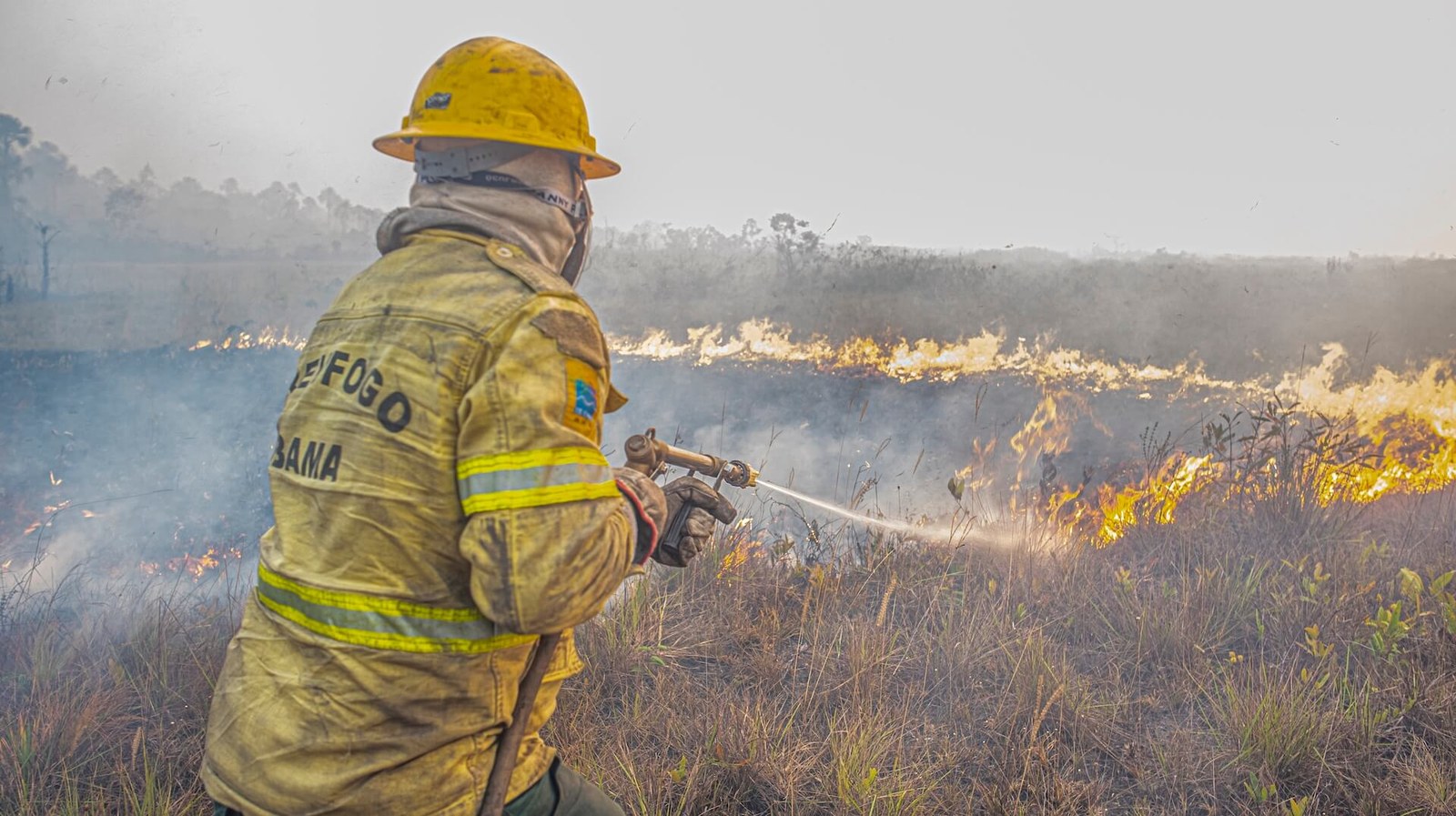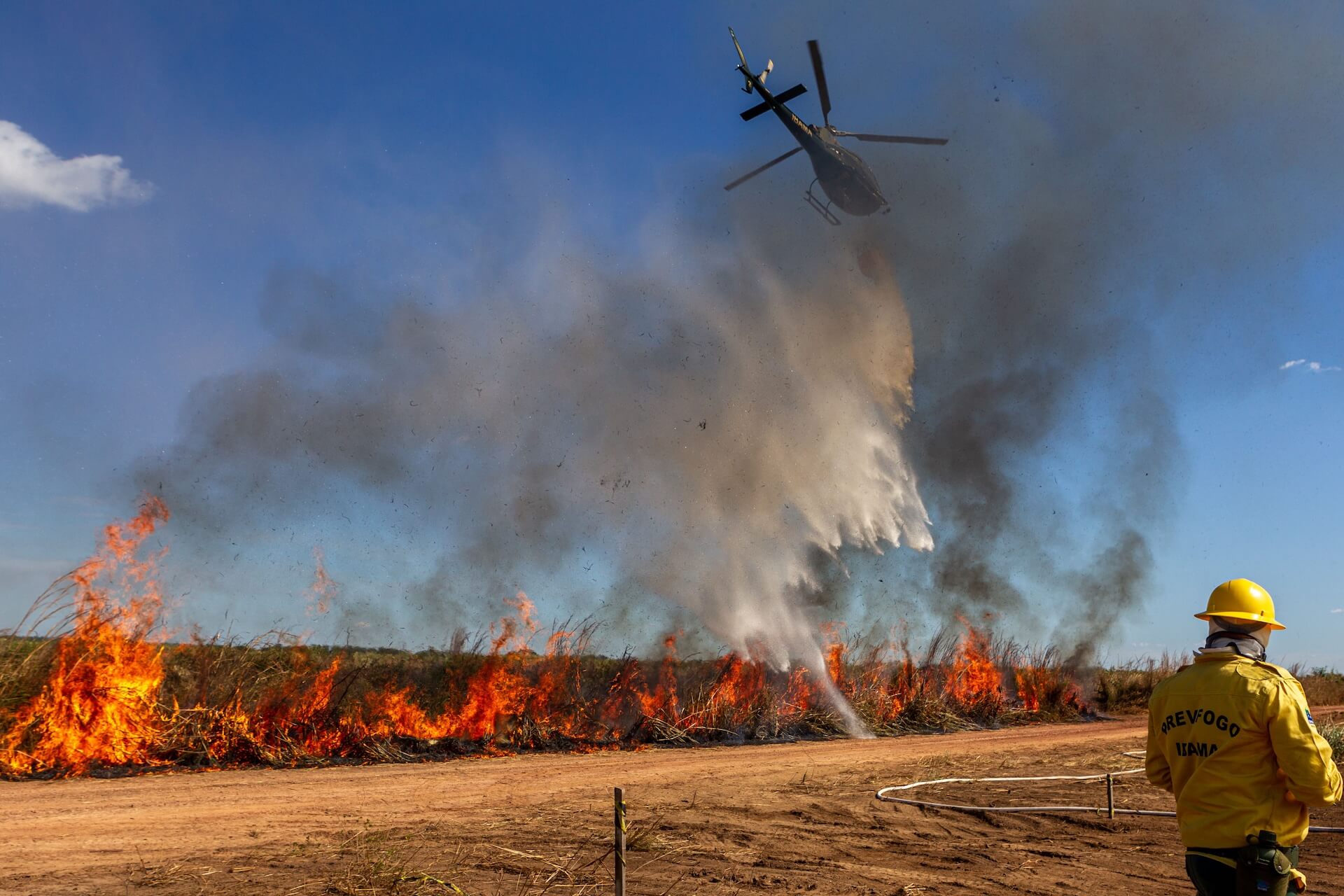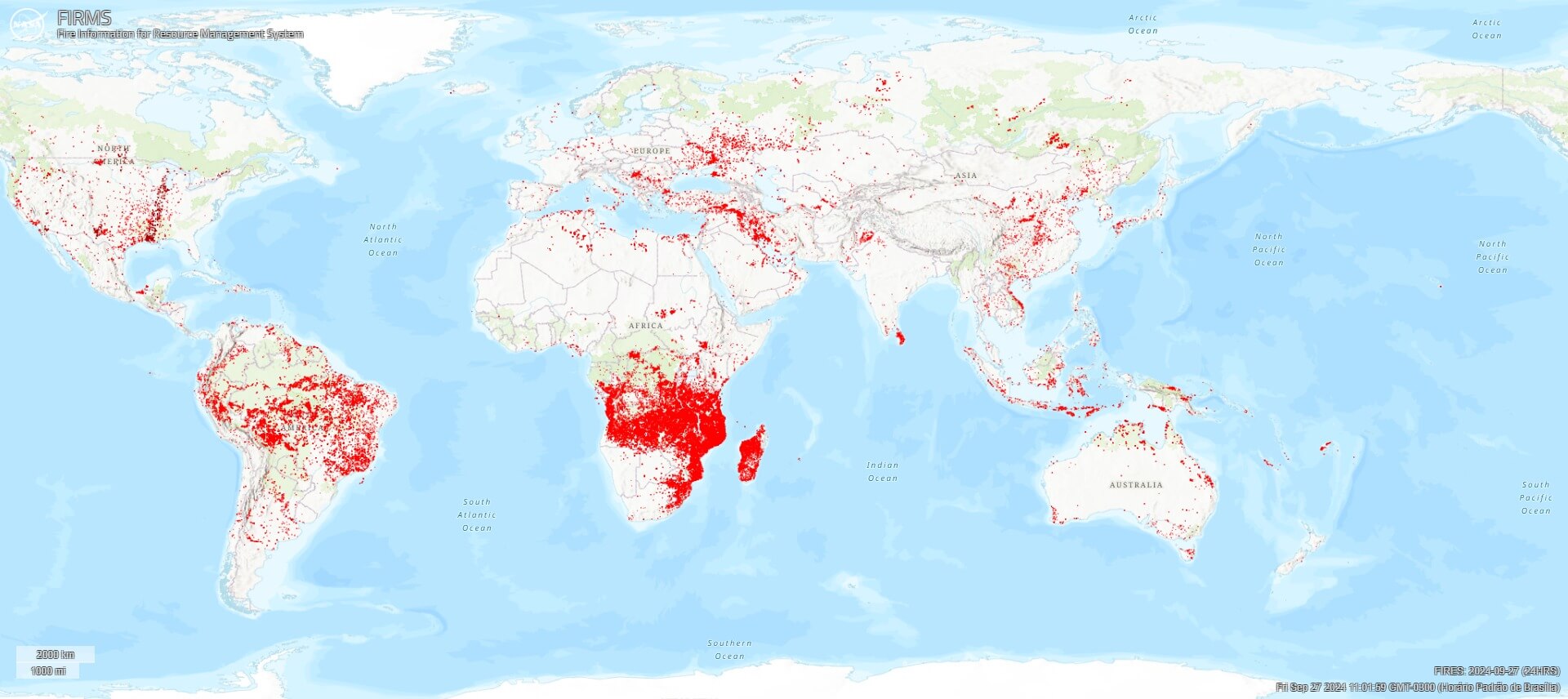Wildfires and climate crisis: The 2023/2024 drought is the most severe in recent history, records show
The impact of wildfires and the global climate debate are urgent topics at the center of the G20 debate. In recent months, wildfires in Brasil have increased, mainly aggravated by human action. The problems that accelerate climate change will be discussed until Thursday, 03rd of October, in Rio de Janeiro, at the technical and ministerial meetings of the G20 Environment and Climate Sustainability Working Group.

The wildfires have become a critical environmental issue, with severe impacts on the environment, economy, and public health. In recent years, the intensification of wildfires has generated global concern, given that the Amazon Rainforest is one of the world's most biodiverse biomes and is essential for regulating the global climate.
From an environmental point of view, the damage is enormous. The destruction of biomes such as the Amazon results in biodiversity loss and compromises ecosystem services such as air purification and water cycle regulation. The Amazon rainforest, known as the "lung of the world," plays a vital role in absorbing carbon dioxide (CO2), one of the main greenhouse gases. The destruction of these forests aggravates global warming.
From an economic point of view, the damages include issues such as loss of forest resources, damage to local and regional agriculture, and high costs of firefighting efforts. There are also public health implications, such as respiratory diseases caused by smoke inhalation, overloading local health systems.
From January 1st to September 22nd, 2024, about 11 million hectares were burned in the Amazon, which represents 2.8% of the biome. Faced with the severity of forest fires in Brasil, the Brazilian Institute of Environment and Renewable Natural Resources (Ibama) and the Chico Mendes Institute for Biodiversity Conservation (ICMBio) have mobilized 3,500 professionals to work in the Amazon, Cerrado, and Pantanal biomes. The operation is supported by 15 planes, 14 helicopters, and many vehicles and vessels to fight the flames.
The brigades of Ibama's National Center for Prevention and Combat of Forest Fires (Prevfogo) carry out preventive actions, advise on controlled fires, and promote educational activities in local communities and schools. Prevfogo experts point out that the origin of the wildfires is criminal. Ibama, in partnership with the state civil police, is in charge of the investigations to identify and prosecute those responsible. The Federal Police has already opened 96 investigations to investigate the wildfires that have spread throughout Brasil. The findings indicate that most of the wildfires were caused intentionally, with solid evidence of a connection to crimes such as land grabbing, illegal exploitation of public areas, and even political motivations.

Brasil's presidency has placed climate change as one of the main themes of the G20, as explained by André Aquino, coordinator of the Environment and Climate Sustainability Working Group of the Ministry of the Environment and Climate Change. "The topic of climate change is at the center of the G20's attention, not only in the Climate Sustainability group. We also created the Task Force for the Global Mobilization against Climate Change, which promotes dialogue between governments, financial institutions, and international organizations. The extreme weather events of 2024 reveal the urgency of collective action,” he explains.
Aquino says that the objective of the work is to increase the available financing, facilitate access to resources and ensure that this money reaches the most vulnerable countries, such as some nations in Africa, Central America and Southeast Asia. "The situation is increasingly alarming. We need to increase our ability to adapt. We propose a global fund to encourage tropical nations to maintain their forests and control wildfires through payments," he emphasizes.
The coordinator comments on the preparation of the new Climate Plan, which will define actions for Brasil to reduce its greenhouse gas emissions and adapt to climate change impacts. "We are preparing a plan that has been discussed with society, and we are learning from other countries that also face recurring wildfires, such as South Africa, the United States and Canada," he points out.
Continuous monitoring and climate challenges
Reporter: Ana Paula Cunha, a drought researcher at the National Center for Natural Disaster Monitoring and Alerts (Cemaden), reports that the period between 2023 and 2024 recorded the most intense and extensive drought since the agency began monitoring these events. “We conducted analyses based on two datasets, one starting in the 1950s and another in the 1980s. Both confirmed that the 2023/2024 drought is the most severe ever recorded in recent history," she explains.
The researcher notes that droughts are not just local phenomena, but have transboundary impacts. "If we look at the map of drought in South America, we see that neighboring countries, such as Paraguay and Bolivia, are also facing water crises. Rivers cross borders, and when a drought affects the headwaters of a river in another country, we are also impacted," she says.
Ana Paula also notes that the effects of these droughts and wildfires affect everything from energy production to agriculture and grain transportation. In addition, she highlights that the fires have a direct impact on human health. "Today, many regions of Brasil are facing more than 100 days without rain, which causes the smoke from the wildfires to remain suspended in the air, aggravating respiratory problems, which is very worrying," she warns.
Significant increase in wildfires
The state of São Paulo experienced in August 2024 one of the most critical periods when it comes to wildfires, according to data presented by Fabiano Morelli, head of the Wildfire Program of the National Institute for Space Research (INPE). "From the beginning of the year until August 26, there was a significant increase in the number of wildfires compared to the same period of the previous year," she informs.
According to the survey, there were 5,281 outbreaks of wildfires until the end of August, an increase of 378% compared to the 1,104 outbreaks of the previous year. INPE has been monitoring wildfires by satellite since 1998, which allows the seasonal comparison of fire outbreaks over the years. In August, satellite images captured the peak of the crisis, with several fire outbreaks visible in different regions of São Paulo and across the country. INPE continues to monitor the situation and reinforces the importance of raising awareness to minimize the impacts of wildfires.

Global Overview of Extreme Climate Events
In the world scenario, the emission of greenhouse gases and global warming result in more severe and devastating weather phenomena, affecting all regions of the planet in different ways. Heat waves are one of the most recurring problems. The United States and countries in Europe and Asia have been facing record temperatures, which have caused thousands of deaths, infrastructure collapse, and prolonged droughts, which primarily affect agricultural production and water supplies.
Moreover, the rising of sea levels, caused by melting glaciers and warming oceans, directly threaten island nations and densely populated coastal areas such as Bangladesh and parts of the southeastern US. The climate crisis is also related to food insecurity. With prolonged droughts in Africa, and altered rainfall patterns in many parts of the world, food production is at risk, which can lead to humanitarian crises and mass migration.
Coordinated global action is increasingly urgent to mitigate these effects and prevent climate impacts from becoming irreversible. Climate issues will be discussed between October 1st and 3rd in Rio de Janeiro when the G20 Environment and Climate Sustainability Working Group will hold technical and ministerial meetings.
Translated by PGET-UFSC